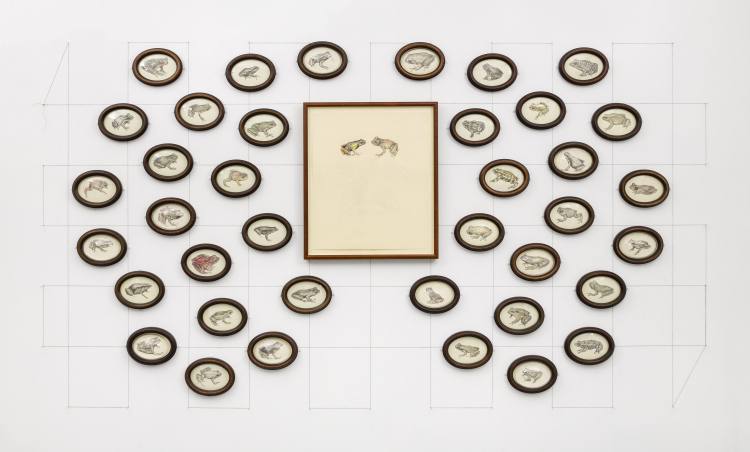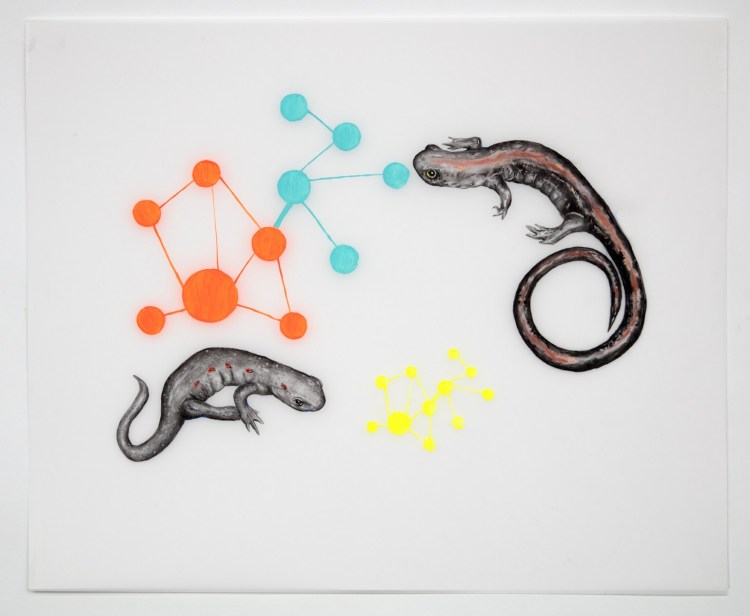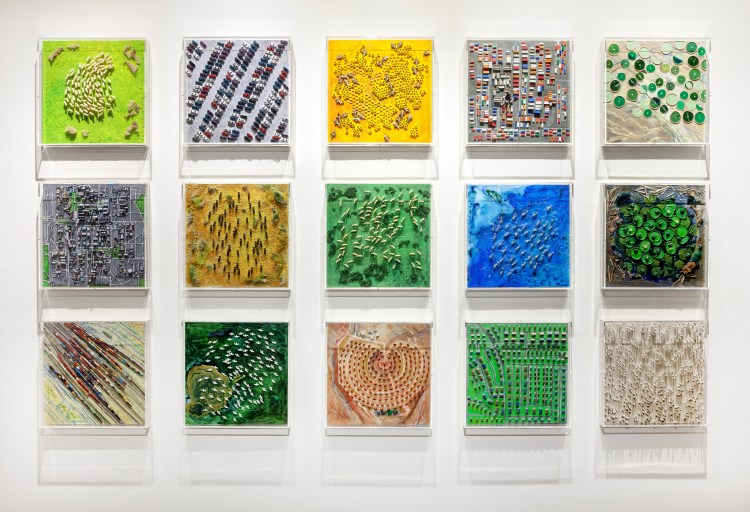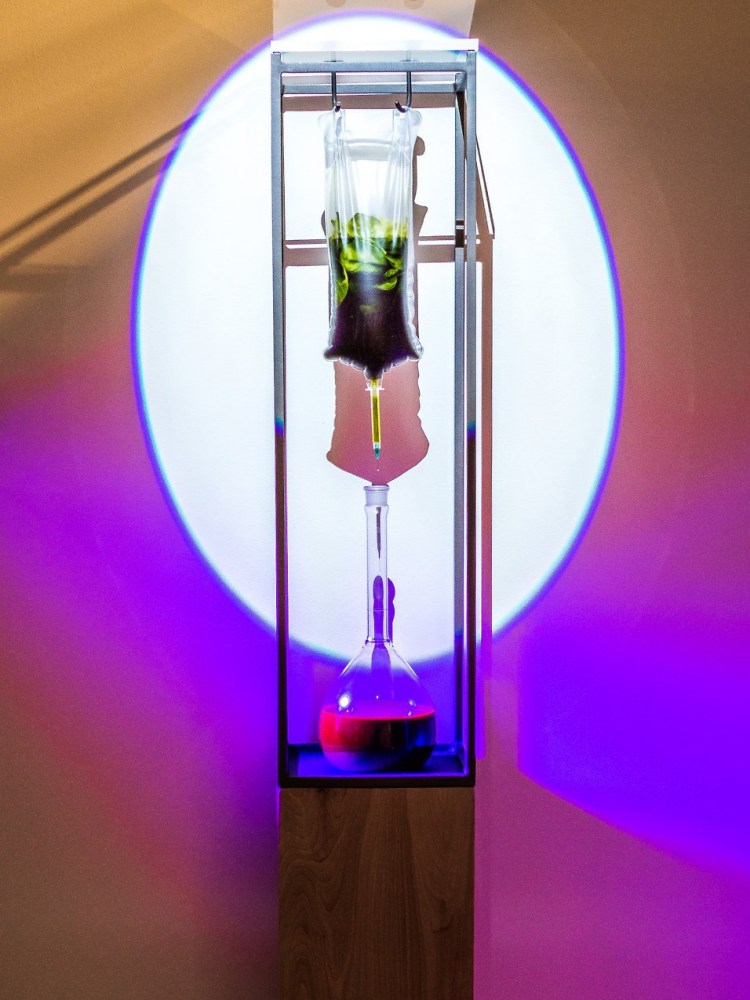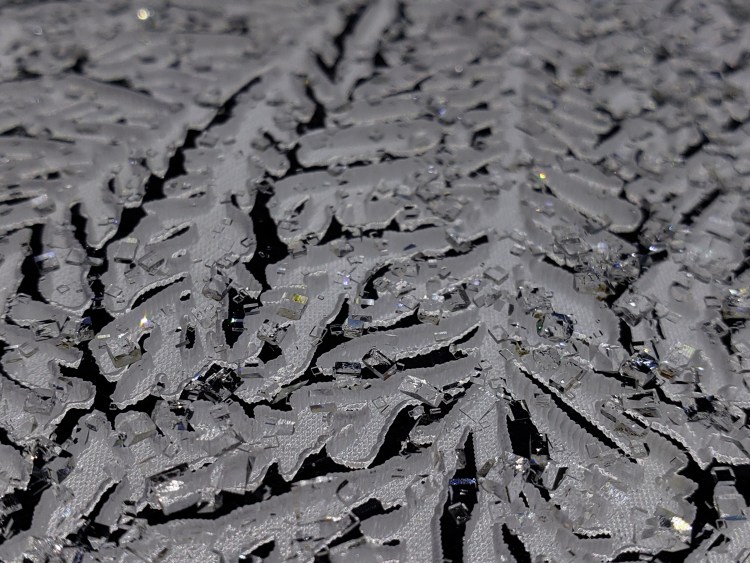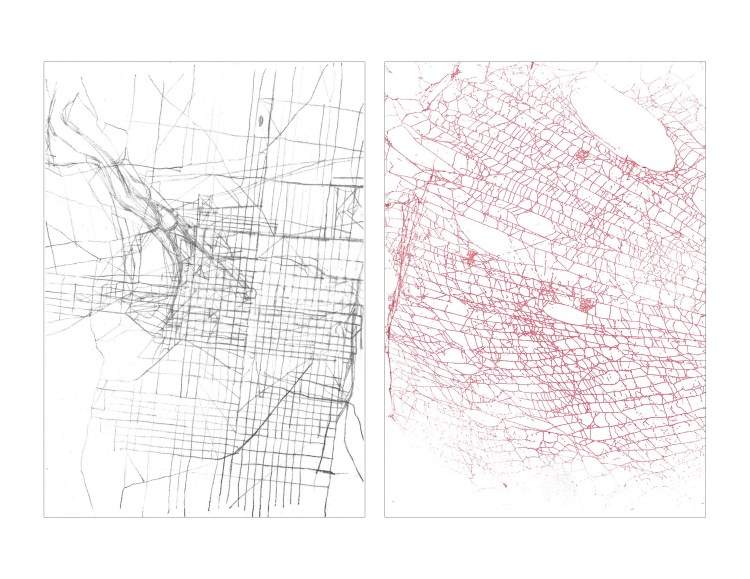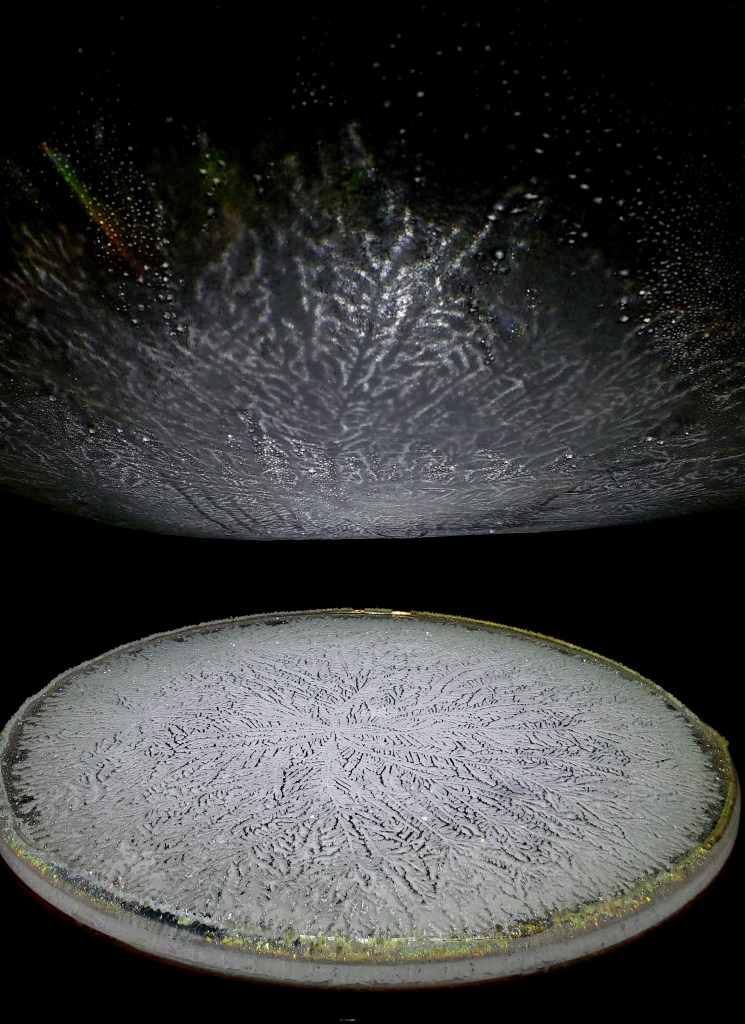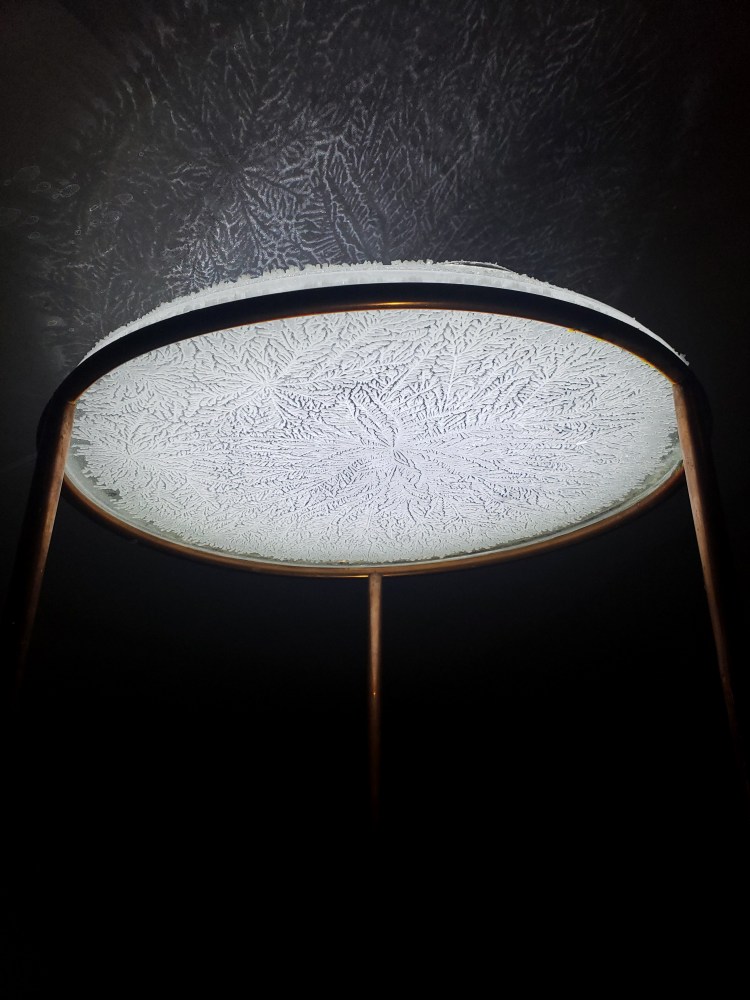Spontaneous Emergence of Order
January 4 - March 15 2019
Featuring the works of Tanya Chaly, Tarah Rhoda, Magdalena Dukiewicz, Richelle Gribble
Curated by Elena Soterakis and Jeannine Bardo
BioBAT’s inaugural art exhibit, Spontaneous Emergence of Order, featured four interdisciplinary artists who create works based in science and technology. These artists approach their practices like a scientist, incorporating deep research, observation, exploration, and experimentation. Their works connect us all to the natural world and our place in it and their journey lends beauty and understanding to the abstract.
Spontaneous emergence of order is a form of self-organization out of seeming chaos, the
organic forming of systems mastered by no one person or thing, but the unfolding, natural order
of a collective of events and actions. The four artists in this exhibit are sifting through this
ordered chaos and creating their own new order based on their findings. Whether their interest
is in the biological or the technological, their works are all connected through the messiness of
life itself and our connections to the natural world.
Magdalena Dukiewicz
In my recent practice I deconstruct and recontextualize hydrolyzed animal collagen and blood in order to create an aesthetically refined artworks. The pieces itself will further transform with time and eventually disintegrate again. It is, in a way, a material recycling and also a metaphor of life
cycle. Its ephemeral nature places the accent on the common thread that connects my work: time, transformation, memory, identity and death.
Richelle Gribble
I explore life at all levels of living systems – organisms, social systems, and
ecosystems – to examine and promote our interdependence. By visually revealing
structural patterns and characteristics between cross-disciplinary networks, the
distinctions between our social, biological, and technological networks blur into one
integrated system, our connected Earth. My work has evolved from making
comparisons between networks (i.e. molecular systems, social networks, neural
pathways, freeways systems, etc.) into a deep analysis of an important question:
how does connectivity, for better or for worse, influence our lives and our future?
Tanya Chaly
In my work I have been exploring ideas around the presentation and records of natural history, wilderness and the mechanisms of the natural world. My practice involves both research trips and extensive gathering of a variety of materials as well as fieldwork and direct contact with scientists. I am interested in the idea of how to render the seemingly invisible forces that surround us and yet play and shape much of our world and continue to possibly re-engineer what we perceive in the natural order.
Tarah Rhoda
My work is an exploration of the body as a miniature world- one that echoes the natural geographies, diversity of landscapes, weather patterns and biological processes that produce a spectrum of minerals. Literally ‘mining’ myself as an archaeological site, I adapt such extractions into poetic reflections and devices, often utilizing laboratory protocols to set the stage. From harvesting the salt of tears, to mapping my freckles out in bacteria modified to express a fluorescent protein found in a jellyfish, to reanimating the fluids that maintain the body, my work embraces eco-connectivity and encourages suspending the self’s sense of separateness.
Artist talks:
Richelle Gribble – Monday, January 7, 2019, 7-9 PM
Tanya Chaly – In conversation with John Petrini, PHD, Saturday, January 26, 2019, 3-5 PM
Tarah Rhoda – Saturday, March 9th, 3 PM
Further events to be announced
Our Artistic Directors
Jeannine Bardo
Jeannine Bardo is a Brooklyn born artist, curator and art educator. She received her BFA in illustration from the School of Visual Arts and completed both a Masters in Art Education and a Masters in Fine Arts from Brooklyn College. She is a multi-disciplinary artist with a focus on humanity’s connections to the natural world. Bardo is the founder and artistic director of Stand4 Community Arts Center and Gallery. Housed in a former medical office in the heart of Bay Ridge,
Stand4 brings the visual arts and programming to the center of the community, opening up opportunities for social, political and cultural connections and creating a discourse that bridges culture and tradition and includes new voices towards a more sustainable future inspired by local interests.
Bardo has contributed writings to galleryELL, was a participating artist and juror for SAW before becoming a board member and is currently a mentor and contributing writer to ART21 Educators. She collaborated on a NYC public artwork titled Ark for the Arts with fellow artist Isabelle Garbani that focused on climate change and resiliency in the community of Red Hook, Brooklyn.
Elena Soterakis
Elena Soterakis is a Brooklyn based artist, curator, and educator. Her artwork explores themes of disposability and impending ecological disaster. With both her art and curatorial practices Soterakis attempts to makes sense of the world around us, with a firm belief that the intersection of art and science hold the keys to solving the problems of tomorrow.
Soterakis’ work has recently been exhibited at the Center for Contemporary Political Art in Washington D.C. and Winter Street Gallery at Sawyer Yards in Houston, Texas. In addition, she has exhibited throughout New York at the Flowers Gallery, The Islip Museum, The Long Island Museum, Sotheby’s, the NPR/WNYC Jerome L. Greene Space. She has received a fellowship from the Constance Saltonstall Foundation for the Arts and attended their summer residency program, and was a chosen participant in the New York Foundation for the Arts MARK Program.
Soterakis received her MFA in painting from the New York Academy of Art and a BFA from The School of Visual Arts. She is also an Adjunct Professor of Visual Arts at Suffolk County Community College and the City University of New York’s Stella and Charles Guttman Community College.
BioBAT Art Space connects the communities of Brooklyn, New York with a 21st century working waterfront at the historic Brooklyn Army Terminal. We believe in the power of the arts to enhance creative and critical thinking, make connections across disciplines, and expand knowledge. BioBAT Art Space cultivates relationships between artists, the community, scientists, and future generations of innovators.
BioBAT, a 501(c)(3) corporation, formed by the New York City Economic Development Corporation and the Research Foundation for the State University of New York, develops and leases affordable space to growing science and technological companies.
BioBAT welcomes you to visit the Art Space and be a part of the dialogue.
-Kathleen Otto, Executive Director of BioBAT





